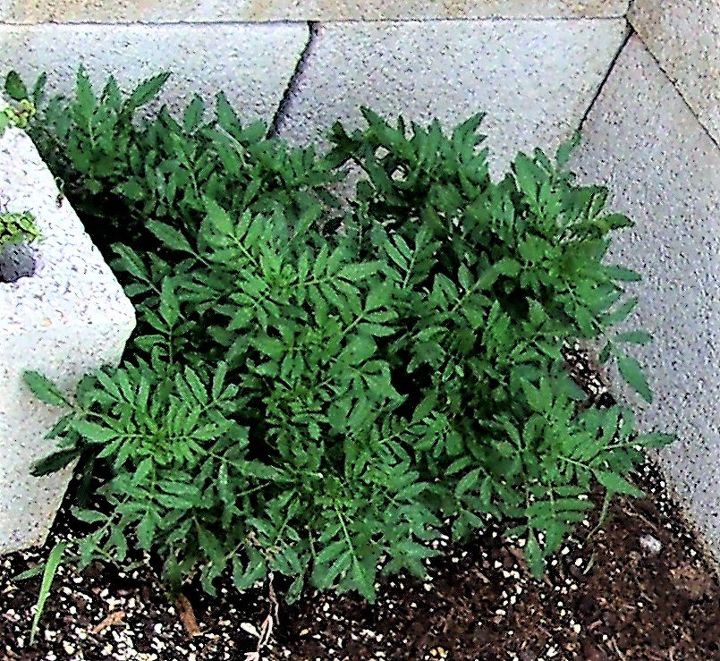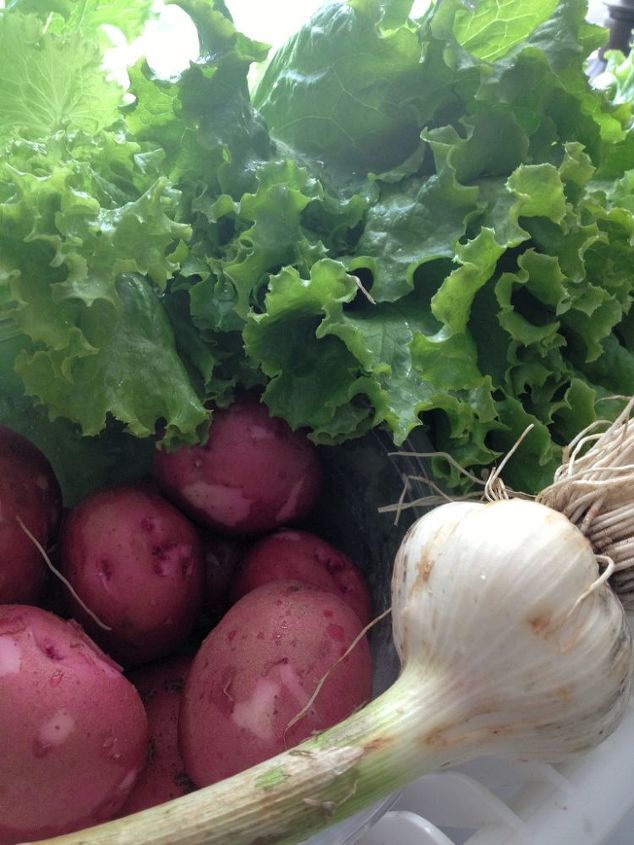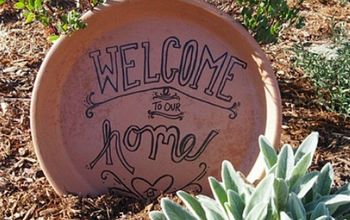How to make organic weed killer?

Related Discussions
GNATS - How to get rid of them?
Somehow my house and garden got tiny gnats that killed my fuchsia plant and fly everywhere. I have tried ALL the Web recommendations - soap and oil dishes, sand in th... See more
Marigolds growing! Should I pinch the buds?
My marigold plants are growing. I heard that pinching the buds until Autumn will allow them to grow without killing the plant. Is this true?
Growing garlic
Growing our first garlic, should we wait until the leaves are drying out before we pick it? Husband picked first one today along with our first potatoes.
How to keep mice out of your garden?
Hi everyone, I have mice in my garden destroying my vegetables and I have also noticed them in the barn and shed. Please can someone tell me how to prevent them from ... See more
What's the best flower/plant to grow in Texas?
I know that opinions vary, but what's your opinion?!I have great luck w Rosemary plants. Green all year long.
How to make weed killer with apple cider vinegar and epsom salt
How do I make DIY weed killer using Ajax and ammonia?
natural weed killer with ammonia, Ajax and ?



#1 non toxic eco friendly organic solution....The most environmentally friendly way to get rid of weeds is to pull them up, dig out the roots, let them dry in the sun, and then add them to a compost or mulch pile. Just because these are 'natural' or homemade herbicides, that doesn't imply that they couldn't harm your soil, your garden, or your person. An herbicide is a "substance that is toxic to plants," which means that your garden plants are just as susceptible to these treatments, they could have a negative effect to the soil if applied in large quantities & salt contributes to the larger issue of water contamination and soil/microbe death.#1Drench with boiling dihydrogen monoxide:
This homemade herbicide is by far the simplest to prepare, and unless you happen to spill boiling water on yourself, is also the least harmful to both people and the environment. Simply bring a big pot of dihydrogen monoxide (that's a fancy way of saying water) to boil on your stove, and then pour it over the leaves and stems of the weeds you wish to get rid of. Using boiling water is an effective method for killing weeds in places such as sidewalk or driveway cracks, or over a larger area that you'd like to replant after the weeds are gone, as it doesn't leave any residue or have any harmful long-term effects. As with all of these homemade herbicides, it's still important to only apply it to the plants you wish to get rid of, as they can easily also kill your flowers or vegetable plants.#2Light 'em up with fire:
The application of direct heat to the foliage of weeds will cause the plants to immediately wilt, and repeated applications will kill any leaves that may resprout from the roots. A flame-weeder tool is available from home and garden stores, which allows you to apply flame and heat directly to the weeds without catching the whole neighborhood on fire. In fire-prone areas, weeding with flame needs to be done with some extra precautions, as dried weeds and grasses can easily catch fire and get away from you.Not good on poison oak,sumac or ivy.#3Pickle 'em with vinegar:
OK, so it's not exactly pickling, but by applying this common household item, white vinegar, to weed leaves, they'll die off and make room in your yard for more desirable plants. The white vinegar sold in grocery stores is about 5% acetic acid, which is usually strong enough for most weeds, although a more industrial strength version (up to 20% acetic acid, which can be harmful to skin, eyes, or lungs) is available in many garden supply stores. The vinegar can be applied by spraying full strength onto the leaves of the weeds, being careful to minimize any overspray on garden plants and nearby soil. Repeated applications may be necessary, and the addition of a little liquid dish detergent may improve the effectiveness of this homemade herbicide.#4Season them like chips:
Another common homemade herbicide recipe calls for combining table salt or rock salt with white vinegar (1 cup salt to 1 gallon vinegar), and then spraying this mixture on the foliage of weed plants. Adding liquid soap is said to help the efficacy of this weedkiller, as is the addition of certain oils, such as citrus or clove oil.#5Harness up the 20 mule team:
Borax, which is sold as a laundry and cleaning product in many grocery stores, might not actually get transported by a 20 mule team anymore, but it could help lend a hand in the yard as an herbicide. Add 10 ounces of powdered borax to 2.5 gallons of water, mix thoroughly, and use a sprayer to coat the leaves of unwanted weeds in your yard. Keep overspray off of any plants you want to keep, avoid saturating the soil with the solution, and avoid contact with bare skin.
And if you are lazy like me, I just use boiling water, Epsom salt followed by boiling water or plain old white vinegar.
This article has lots of interesting information about homemade weed killers - it's definitely worth a read
https://www.hometalk.com/diy/outdoor/pest-repeller/the-truth-about-natural-weed-killer-exposed-33053043
The Truth About Natural Weed Killer Exposed
Hi Earl - The struggle is real, isn't it?!? This is the most effective all-natural weed killer DIY that we use. It's even been featured on Hometalk! Hope this helps! Hugs, Holly
https://pinkfortitude.com/weed-killer/
There are several here on HM:
https://www.hometalk.com/search/posts?filter=weed%20killer
I just soak the area and pull the next day...I need the exercise! LOL
-----------
This is not an exact science – approximate measures are totally fine 1 gallon white vinegar and cup Epsom salts and ¼ cup liquid dish soap Combine ingredients in spray bottle and treat weeds at the hottest time of day for best results.